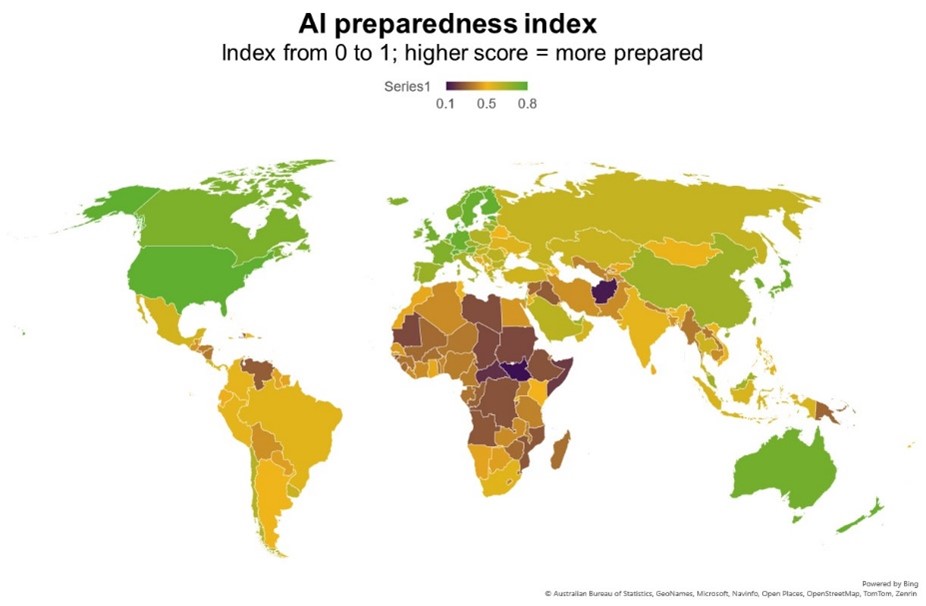Global — Advanced economies lead the way in AI preparedness
Artificial intelligence (AI) has the potential to boost productivity and economic growth around the world. AI allows businesses to analyse data more efficiently and strengthen their understanding of export markets and consumer preferences. But there are also challenges. Businesses face new security risks while AI could also eliminate jobs and worsen income inequality.
A new IMF index shows advanced economies (AEs) tend to be better equipped to leverage the advantages of AI and manage potential risks relative to lower-income countries. Singapore, the US, Denmark and Netherlands posted the highest scores on the index (Chart). AEs tend to invest more in education and training to leverage the benefits from AI-related jobs. They typically have stronger digital infrastructure, including internet connectivity and data centres, to support AI applications. Wealthier countries also have greater capacity to support innovation and research and development that increases AI adoption. Although AEs may be more exposed to job losses—IMF research indicates 33% of jobs in advanced economies, 24% in emerging markets, and 18% in low-income countries are under threat—their stronger institutions and regulations relative to lower-income countries allows them to better manage the risks.
On the other hand, while emerging markets (EMs) and low-income countries may have fewer employment risks due to their lower share of skilled jobs, these countries are typically less well advanced in digital infrastructure and training for workers, which could exacerbate income inequality. EMs and lower-income countries are also more likely to be late adopters of AI, resulting in smaller economic benefits than early adopters, according to McKinsey. EMs and lower-income countries, which purchased 57% of Australia’s exports in 2023, appear less prepared for AI than North America and Europe based on the IMF’s index.

